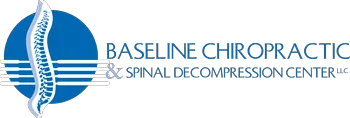Heart Disease Is Still Number One!
- Created in Newsletter Library, Chronic Conditions
According to a recent report, cardiovascular disease claims more lives worldwide than any other disorder.1 Diseases of the heart and blood vessels, including coronary artery disease, are responsible for more than 4 million deaths in Europe each year2 and almost one-third of all deaths worldwide. In the United States, coronary artery disease is responsible for nearly 20% of all disease-related deaths. Each year approximately 1.5 million Americans suffer a heart attack. Despite decades-long public health campaigns conducted across the globe, heart disease remains a powerful, formidable foe.
A large part of this problem is related to three classical risk factors for heart disease: high blood pressure, high cholesterol levels in the blood, and diabetes. As worldwide epidemics of obesity and diabetes continue to worsen, it is easy to understand why heart disease remains a number one killer. Obesity is strongly linked to high cholesterol levels, and the combination of diabetes and overweight/obesity is strongly linked to high blood pressure. As the epidemics persist, so does the prevalence of heart disease risk factors. No public health issue exists in isolation, and this is especially true for heart disease.
However, there is good news. Heart disease, hypertension, diabetes, high serum cholesterol levels, and overweight/obesity are all lifestyle disorders. This means that we can take meaningful action on our own behalf and begin to do things that will positively impact our long-term health and well-being. Such lifestyle changes are important for everyone, as people of all ages, races, and genders may be affected by lifestyle diseases.
Lifestyle changes primarily involve modifications to diet, engaging in consistent vigorous exercise,3 and getting sufficient rest. For example, it is well-known that many people in the developed world consume more calories than they need on a daily basis. The excess calories are stored primarily as fat. Reducing daily food consumption, while adhering to the basic principle of eating from a wide variety of food groups, including fresh fruits and vegetables, will likely result in weight loss and a normalization of high cholesterol levels. Assisting in this process is the practice of engaging in regular vigorous exercise. A proven method is to exercise for 30 minutes five times per week. Such exercise can include walking, cycling, running, swimming, and strength training. The specific choice of exercise is less important than the consistency. The payoff for your commitment to a healthy diet and regular exercise is significant. Research shows that prevention strategies such as lifestyle modifications account for a 50% reduction in mortality from heart disease. This is a huge return on investment.
But in order to reap these rewards, a commitment of time and effort is required. In today's world, good health doesn't just happen. We have to work at it. It's up to us to choose whether we're worth it, whether we want to continue to enjoy a full range of relationships and activities, whether we want to be healthy and well for many years to come. If the answer to these questions is affirmative, lifestyle changes become very important.
1Carmon B: Biochemistry to behaviour. Nature 493:S2-S3, 2013
2Perk J: The power of disease prevention. Nature 493:S6, 2013
3Winter KH, et al: Hypertension Prim Care 40(1):179-194, 2013
Locations
Office Hours
Our Regular Schedule
Monday:
8:00 am-11:30 am
2:00 pm-6:00 pm
Tuesday:
By Appt Only
3:00 pm-6:00 pm
Wednesday:
8:00 am-11:30 am
2:00 pm-5:00 pm
Thursday:
8:00 am-11:30 am
2:00 pm-6:00 pm
Friday:
By Appt Only
By Appt Only
Saturday:
Closed
Sunday:
Closed
